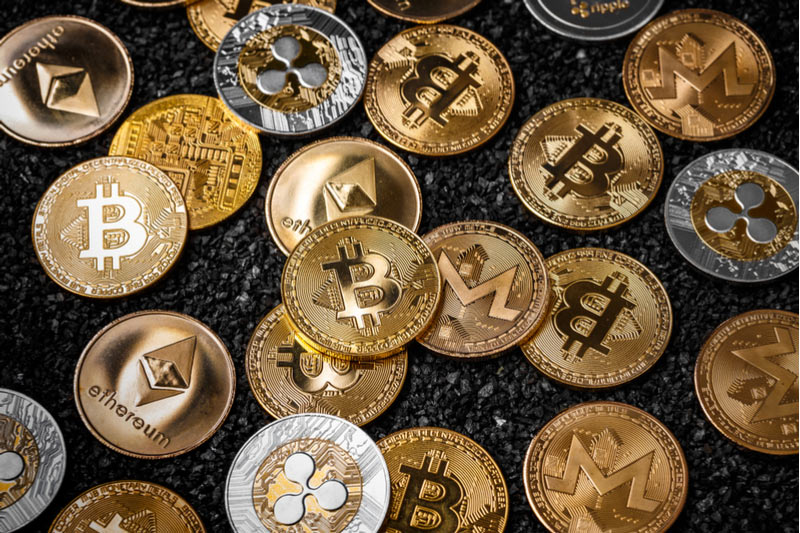Using blockchain technology, HLTH aims to solve problems in data sharing by creating a secure infrastructure and a fast, interoperable network that is globally accessible.
HLTH is a base layer protocol built on the blockchain used to aggregate global health data into a single repository. Doing so will increase accessibility around the world, interoperability with all platforms and institutions, and provide security so that the information is incapable of being stolen by traditional means. The autonomy of the blockchain will also give individuals ownership and personal responsibility for their own data, allowing them to provide access to multiple institutions or research centers at the click of a button. The accompanying ecosystem provides other integrations including NFTs that carry genomic data.
Identifying the Problem
Currently, many healthcare institutions in America use the EHR, or electronic health record, which is based on the plan taken from the Health IT roadmap. However, not everyone uses this method, and many of those who do use it don’t use it properly. Information isn’t shared back and forth. And of course, any data created outside of this system becomes isolated and inaccessible to the wider network.
What is the Blockchain?
In a digital world, this is what makes authenticity, ownership, and scarcity possible. Data cannot be copied or deleted, and it can be traced back to its source. The data can be accessed from anywhere in the world at any time. Individuals can exercise ownership over their own data and verify the authenticity of that data to reputable institutions. These large institutions previously may not have trusted an individual to present their own data without a verified third-party giving approval.
Why Blockchain is the Solution
Without unnecessary authorization, anybody in the world may access information stored on the blockchain. So long as that information is approved for open access. Individuals are able to own their own health records as a result of this. Each patient has ownership over and maintenance of their own patient file, with only certified healthcare practitioners able to make changes. When the patient presents this data to their healthcare practitioner, the physician may use the blockchain to check previous inputs and updates, ensuring that the patient is speaking the truth about their condition. Doctors and patients may keep an up-to-date record by engaging with only one source of information, which can be viewed and changed by anybody at any time with the patient's pre-determined permission. As long as the healthcare practitioner follows the provided method, no tiny detail will be missed or overlooked. Each update to the record is logged as a new transaction on the blockchain. For long-term integrity, these transactions can be traced and confirmed.
Patients currently have no control over their own data. The data belongs to the systems and entities that produced it. Not only is it vulnerable to cyber-attacks, but it also makes it difficult for patients to locate it when they need it. Their health information is entrusted to such institutions, and the authority over their own well-being is entrusted to huge, for-profit, centralized organizations. It is not easily accessible for patients or for the entities that they wish to share it with.
With a globally accessible blockchain, ancillary institutions such as pharmacies and insurance companies can have immediate access to the verified, secure medical information, saving time and energy spent looking for and waiting for permission from whoever may have the documents at the moment. It's as simple as giving permission. This also provides research institutions with quick access to a vast, complete database of information, allowing patients' consent to be granted at the touch of a button. Patients may be enticed to utilize the blockchain-based platform and share their data with these types of facilities by receiving tiny monetary rewards provided by smart contracts. Smart contracts are bits of code that may be interacted with to perform preset functions like releasing a specific amount of money when certain criteria are satisfied.
Another issue with healthcare data is a lack of adequate security. Stealing this information is extremely profitable, and there are several simple methods to do it in older systems. Ransomware has the ability to take over a whole database. Phishing efforts can steal administrator information, which can then be used to illegally access a database. Despite the fact that cybersecurity spending has risen significantly over time, hackers continue to devise new schemes.
It's worth noting that not all of the patient's data will be kept directly on the blockchain. The blockchain only keeps a tiny quantity of transaction data. Unless decentralized storage is established, the majority of the data will still be kept on centralized servers. While this does not represent a threat to the utilities listed earlier, it does require more investigation.
In terms of security, the blockchain has the advantage of being nearly impossible to hack. The data saved on the blockchain is extremely safe. The transaction information as well as the validity verification are impossible to tamper with. This immutability would not be present in data kept on centralized systems. However, the data kept on those servers would be considerably safer if it could only be accessed through the blockchain's cryptographic algorithms, rather than simple access via admin credentials and human mistakes.
The government and the healthcare sector as a whole recognize the importance of a robust data-sharing ecosystem with built-in security and interoperability. When properly implemented and refined over time, blockchain technology is the best answer possible for both institutions and individuals.
